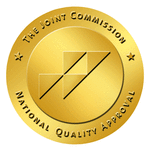If you are reading this and someone you care about is suffering from alcoholism or drug addiction, my heart truly goes out to you. No one wants to be the bad guy and no one wants to point at the elephant in the room; it’s not how any of us were raised. Believe me when I say that it’s a war we are in, and that casualties can be prevented, and that most of what you need to do to win this war is intervene on the destructive behavior, draw a boundary, and stick to it. This is not an imaginary solution, it’s a solution that works.
But, I’ve got to warn you going in: if you’ve really got what it takes, it’s going to take everything you’ve got. But the benefits of a drug or alcohol intervention definitely outweigh the alternative.
Here Are Some Steps Will Help To Guide You Through The Process.1. Meet with friends and family members, but do not include the addict or the alcoholic. Between three and six people is a good number. Agree that you will maintain confidentiality, and please do not include children. Discuss the facts about the patient, and note the harmful behavior all of you observe. Plan what each of you will say and in what order. Try not to be repetitive. Discuss how you believe the patient will react, and anticipate how you will address denials, tears, anger, and so forth.
2. Meet with a professional counselor or therapist before the intervention, with your whole group but not with the patient. Rehearse what each of you will say, and discuss possible reactions with the therapist. The therapist may ask that you write down a list of behaviors that will no longer be tolerated and what the con sequences will be if each behavior continues. You might also make a list of losses that resulted from the addict’s behavior, such as a job, a relationship, or money. Choose a spokesperson for the intervention.
3. Discuss treatment options with the therapist. Ascertain that the situation merits intervention, that the patient is causing harm but is otherwise not suffering from a mental condition. Choose a facility in advance, and contact that facility to discuss your plan.
4. Choose a private location, and decide who will sit where. Make sure there will be no interruptions, including cell phones. All should be in attendance before the patient arrives. Arrange a time when you believe the patient will be sober.
5. When the patient arrives, speak calmly and do not accuse anyone in the room. “We are all here because we love you and we are concerned about you.” You don’t need to use the words addict or alcoholic. Begin each sentence with the word I or we, and not the word you. Such as, “I am upset about how you are drinking and stressing out the family,” or “We are here to save you from yourself.”
6. Ask the patient to confirm that there is a problem. If he or she denies a problem, go around the room and ask each group member for evidence of the problem. Remember to avoid accusations or anger. Listen to what the addict says, but don’t agree with him or her. Tell the addict you love him or her, and that you don’t want the addict to destroy his or her life.
7. Offer immediate treatment, and explain the details about the therapeutic facility you have arranged. It is not acceptable for the patient to say that he or she will seek treatment “later.” This meeting is an ultimatum, and you have prepared in advance for what you will say to every objection. It will be difficult, but the counselor will help the patient deal with anger or denial. You don’t want the patient to feel as if everyone has ganged up on him or her, but be strong. Don’t cave in.
8. Close the meeting on a positive note: “We just care so much about you, or we wouldn’t do this at all.” In most cases, the patient will agree to go to rehab. If not, then that doesn’t mean you failed. Your efforts may start a chain of events that ultimately leads to change for the patient. In addition, you have made it known that you will no longer enable his or her behavior.
An intervention is a success even if the client refuses to go to rehab, because at least the family has united to set a boundary. This means life will not be the same for the addict, and a process has started that will one day result in the addict getting treatment.
—–
The above is an adapted excerpt from the book Alive Again: Recovering from Alcoholism and Drug Addiction by Howard C. Samuels, Psy.D. The above excerpt is a digitally scanned reproduction of text from print. Although this excerpt has been proofread, occasional errors may appear due to the scanning process. Please refer to the finished book for accuracy. Copyright © 2014 Howard C. Samuels, Psy.D, author of Alive Again: Recovering from Alcoholism and Drug Addiction


 RSS Feed
RSS Feed
